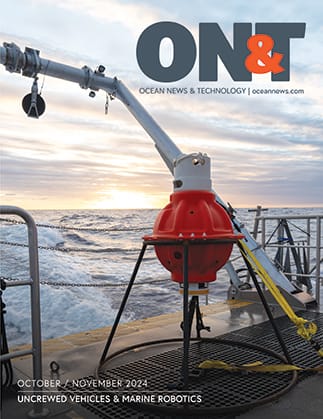Kraken President & CEO Karl Kenny commented:
“We are excited to enter into a CRADA with NSWC Carderock. Since 2018, we have delivered our 6000-meter pressure tolerant batteries to several US and foreign customers including US defense customers. We hope this CRADA and testing with NSWC Carderock, which has significant experience with Navy safety requirements, will help increase adoption of Kraken’s pressure tolerant batteries into US Navy programs of record and sales with US Navy defense contractors.”
Subsea Battery Testing Details
Code 636 possesses capabilities and expertise covering all aspects of power source development and deployment, ranging from generation of the initial battery design, through development and prototyping, acquisition and testing, to introduction to the Fleet. Code 636 also manages and implements the Navy’s Lithium Battery Safety Program in conjunction with the Program Authority, Naval Sea Systems Command (NAVSEA) Code SEA05Z34.
Kraken Robotics has developed and produces a pressure-tolerant lithium-ion battery design that employs passive propagation resistance to thermal runaway battery casualties. NSWCCD, utilizing its experience in Navy safety requirements, will conduct safety tests on the newest variant of Kraken Robotics’ pressure-tolerant lithium-ion battery design. Results of the testing can be used to inform further design iterations as well as to promote interest in the battery design by US Navy program offices who might benefit from having this battery technology for use in current and future underwater systems. The proposed tests will be carried out in accordance with NAVSEA INST 9310.1c, NAVSEA Technical Manual S9310-AQ-SAF-010, and the NAVSEA High-Energy Storage System Safety Manual, SG270-BV- SAF-010.

